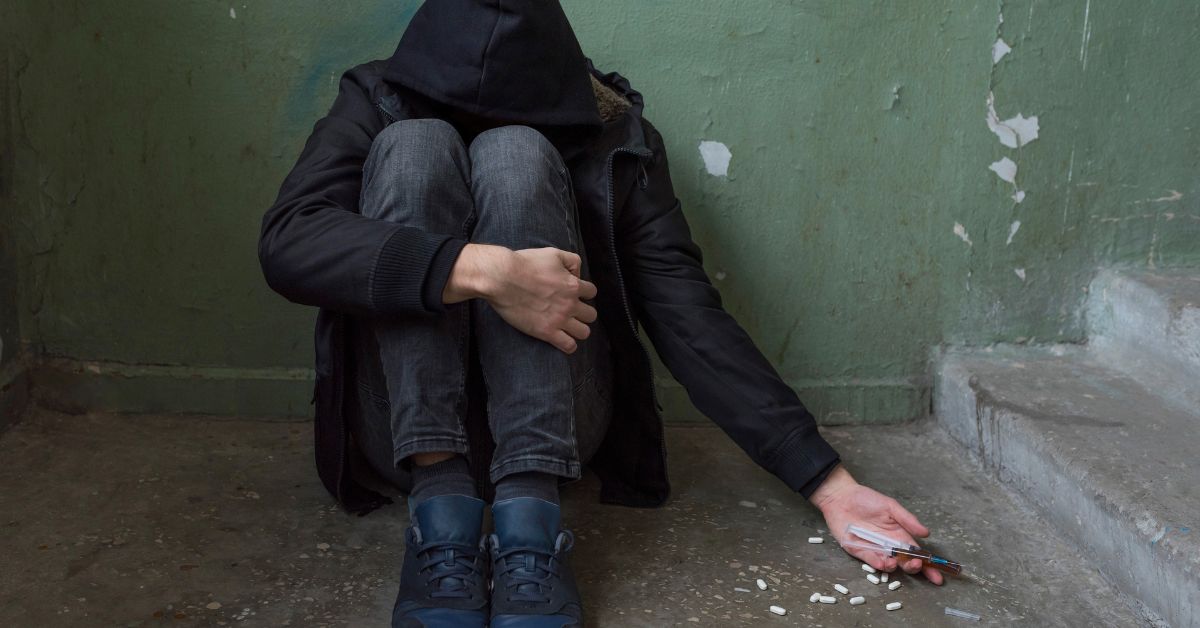Are you grappling with the suspicion that a loved one may be struggling with drug abuse? Have you noticed any unusual behavior or signs that have raised red flags? It’s a distressing feeling, isn’t it? As a parent, you’re faced with a tough decision about whether to drug test your teen.
Experts typically advise against drug testing teenagers unless there’s a strong suspicion of substance use, and it should ideally be conducted by a medical professional. While testing might deter initial experimentation, it often isn’t effective in preventing addiction and can negatively impact the trust in the parent-teen relationship. If you find yourself contemplating whether to take such action, it’s crucial to proceed with great care and consideration of the potential repercussions.
So, what’s the next step? Let’s have an honest conversation with your teen about this challenging aspect of parenting and work together to determine how to handle these tough decisions in your relationship with your teen.
The Moral Debate: Is Drug Testing Your Teenager Right?
It’s hard to decide if you should take this step. You want to care for your kid and help ’em stay on the straight and narrow, but at the same time, they’re their person, and you don’t want to step on their toes. It’s a tricky mix of being responsible but also respecting their space.
Understanding the Pros and Cons of Drug Testing
As a parent, your priority is to keep your child safe, but it’s important to tread gently between care and trust. Let me lay out the landscape for you in simple terms to help you navigate this sensitive issue:
Pros:
- Preventative Influence: The possibility of drug testing might discourage your teen from starting to use drugs.
- Early Detection: Finding a problem early can lead to timelier support and treatment.
- Safety Net: It can provide a way to confirm your concerns and give you peace of mind when there’s a suspicion of drug use.
Cons:
- Trust Issues: Drug testing might signal a lack of trust, straining your relationship.
- Privacy Concerns: Your teen may feel their privacy is violated, which can be damaging to their developing sense of autonomy.
- Emotional Distance: It can lead to bitterness or secretive behavior, widening the emotional distance between you.
Both choices carry weight, and it’s never a simple decision. Whatever you decide, it’s important to keep the lines of communication open and ensure your teen understands your love for them is unconditional.
Signs of Drug Use in Teenagers

Trying to figure out if your adolescent is using illicit drugs can really tie your stomach in knots. It’s not always clear, and the signs might look a lot like typical teenage ups and downs. There are numerous indicators that your child might be high:
- Big Mood Swings: Sure, teens get moody, but huge changes out of nowhere can be a alert.
- Keeping to Themselves: If your chatty kid is suddenly zipped up and avoiding the family, that’s a red flag.
- New Friends: If your teen is hanging out with a new crowd and ditching their old mates, especially if the new friends seem like bad news, it might mean something’s up.
- School’s Slipping: When grades start sliding or they just don’t care about school like they used to, you’ve got to wonder why.
- Ignoring Their Hobbies: If they stop doing the things they love, you gotta ask what’s going on.
But remember, these signs might be about other things, too, not just your kid getting drugs. It’s when you start seeing a bunch of these changes together that you might need to have a heart-to-heart about drug use.
UPDATED: Discover the 3 life-changing things about addiction I wish I knew years ago
Types of Drug Tests: Understanding Your Options
If you’re considering making a test to detect drugs, understanding the variety of tests available is crucial. Each type has its own methodology, substances it can detect, and window of detection. Here’s a gentle guide through the options at your disposal:
- Urine Tests: The most common form of home drug testing, these are favored for being non-invasive and relatively low cost. They can spot drugs pretty quickly after they’ve been used and for a few days after.
- Saliva Tests: These are simple and you don’t need much privacy to do them, which means it’s harder for someone to cheat the test. They’re good for catching drug use right after it happens.
- Hair Tests: These can show drug use from way back, up to three months. They cost more and you won’t get results right away, but they give you a bigger picture.
- Blood Tests: These get you the most accurate results, but they’re more up-close-and-personal, and cost a lot. You’ll likely need a professional to do these. They’re best for finding signs of substance abuse taken in the last few days.
Each test has its place, depending on your situation.
What to Do If Your Teen Tests Positive for Drugs?

Staying calm and keeping the lines of communication open is super important after the drug test results. If it’s negative, breathe a sigh of relief, but work on fixing any trust issues it caused. If it’s positive, then you’re facing a whole different set of challenges—understanding why they’re using and looking at getting help.
When You Should Ask for Help
If the test is negative, use this as a chance to keep building trust. However, if it’s positive, that’s when tough love comes into play—it’s time to get help if conversations aren’t leading to change or if they want to stop but can’t do it alone. And if you feel like the situation is too much for you to deal with and it’s causing family stress, don’t hesitate to reach out for help.
If they’re addicted or having withdrawal, getting a professional involved can give them the medical and emotional support they need. When things get really serious and you’re worried about their safety, getting help from experts right away is key. After all, getting help shows how much you care and are ready to support them.
WATCH: Free, confidential workshop that explains how to "Love Another Way"
What to Do If You Decide Not to Drug Screen Your Teenager
Deciding not to administer a drug test, especially within the context of a parent and child relationship, can be a sensitive and complex decision. This choice may come from a desire to maintain trust, respect privacy, or avoid potential conflict. Here are a few options that might resonate with you in this situation:
- Foster Open Dialogue: Cultivate honest discussions about drugs, ensuring your child feels safe to openly share without fear of judgment.
- Prioritize Education: Teach your child about the risks associated with drug use, focusing on health, legal, and personal repercussions.
- Behavior Monitoring: Stay observant of any behavioral or mood changes that might indicate underlying issues needing attention.
- Encourage Healthy Outlets: Guide your child towards engaging in positive activities such as sports or arts, which can reduce the temptation of drug use.
- Set Clear Expectations: Clearly outline your stance on drug use and the consequences of these actions, maintaining both structure and understanding.
Choosing empathy and open communication over drug testing can lay a foundation for a strong, trusting relationship with your child, enabling them to confidently navigate life’s challenges.
Balancing Vigilance and Privacy: When to Seek Support

The best way to ensure your child is away from substance use and addiction is to have a trusting relationship where you can talk openly and honestly about the dangers and realities of drug use. Sometimes, though, you might need to count on a treatment center if things are too much to manage at home.
There’s a fine line between being watchful and giving your teen some room to breathe. Every parent and child must find their own balance, ensuring it’s a safe and respectful space for everyone. Building and maintaining a trusting relationship is a crucial part of finding that balance.
Sometimes, getting help is the best way to show love. Keeping a balance between protecting your kid and trusting them can be hard, but you can get through it with the right approach. It might be a bumpy ride now, but what you’re doing today might just make for a healthier, happier future for your teenager. That’s real love and dedication.
Frequently Asked Questions About: Should You Drug Test Your Teenager?
How to drug test your child?
To drug test your child, purchase a home drug test kit or arrange for testing at a medical facility with their consent. It’s essential to have an open and non-judgmental conversation with your child about your concerns, ensuring they understand your intentions are rooted in their well-being.
How do I teach my child to say no to drugs?
To teach your child to say no to drugs, start early with open, age-appropriate conversations about the risks and consequences of drug use. Foster a supportive environment that encourages them to share their concerns and empowers them with refusal strategies and the confidence to make healthy choices.
SEE: Find out why your boundaries keep getting crossed (and how to reinforce them)
What happens if you can’t pee for a drug test?
If you can’t pee for a drug test, you’ll usually be asked to stay at the testing site until you can provide a sample under the guidelines set by the testing facility. This may involve waiting for a few hours and drinking water to help your body produce urine.
What happens if you test positive for drugs at the doctor?
If you test positive for drugs at the doctor, the next steps will depend on the context of the test and your healthcare provider’s policies. Your doctor may discuss the results with you to understand the circumstances, assess your health, and provide resources or referrals for substance abuse treatment if necessary.
